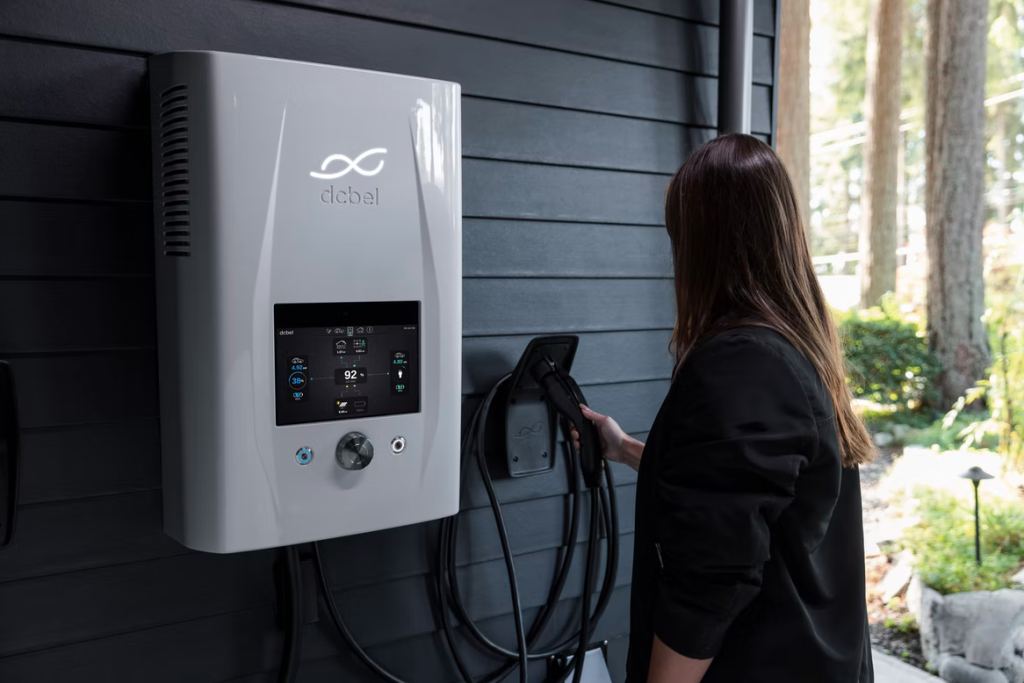
The Electric Vehicle (EV) revolution is well underway, and EVs keep growing in popularity worldwide. As EVs become more commonplace, the charging infrastructure for these greener alternatives to gasoline-powered vehicles is expanding to meet the growing demand. There were 7.3 million EV chargers installed worldwide in 2019, and 6.5 million were installed by homeowners and businesses alike. However, that number primarily encompasses private owners; the number of public charging stations is far less, so you will most likely need to purchase an electric charging station.
Click here to find the closest charging stations near you.
All major automakers are releasing more EV models, shifting their focus towards electrifying their product lineups to align with the global shift towards EVs. With a greater number of EVs rolling out of production lines and more affordable price tags, it might make sense for many to finally consider installing an electric car charger in their homes or their place of business to be in complete control over keeping their EVs charged.
Have you found yourself wondering how much does it cost to install an electric car charger? The expenses associated with installing an EV charger privately can vary drastically based on several factors. This post will be a guide that can give you an idea of what to expect if you decide to install an EV charger at your house or place of business.
EV Charging Station Costs
Various factors can contribute to the overall cost of installing an EV charging station at home or any other location. Output design and charging type are two of the primary factors that could factor in. Where you want to install the charging point, and the contractor you work with for the job, the labor costs, and associated factors could also influence the overall cost you can expect to bear.
There are three types of charging stations: Level 1, Level 2, and DC Level 3.
Level 1
Level 1 EV chargers are the standard vehicle charging points with a 120V single-phase AC of up to 16A, but these are primarily limited to 12A and deliver a charge rate of approximately 5 miles of range per hour of charging. These units can easily be installed in most homes due to the 120V outlets being accessible in most homes.
Level 1 chargers might cost $300-$600 for the equipment alone, and the labor costs for the installation can range from $1,000 to $1,700, depending on the contractor.
Click here to estimate the cost of installing an electric charging station.
Level 2
Level 2 EV chargers require a 240V unit and can cater to a range of charging speed requirements. These EV chargers offer up to 80A of power and can deliver a charge rate of approximately 60 miles per hour of charging. These charging points are quite suitable to meet the requirements of most EVs, but they require specialized electrical circuits that can support a power rating between 20A to 100A.
Level 2 chargers are more expensive than Level 1 chargers. The cost of the equipment can range from $500 to $700. Installation charges, including labor, could be between $1,200 and $700, depending on the contractor.
Click here to see how fast a level 2 Electric charger can charge your car.
Level 3
Level 3 DC EV chargers use 480V units and can charge EVs up to 80% capacity within 30 minutes. However, these are not compatible with all vehicles available today. These are the most expensive types of EV chargers. The equipment alone can set you back anywhere between $20,000 and $50,000. The labor costs could equate to around $50,000.
Click here to see which companies manufacture Electric charging station.
At-Home EV Charging Installation Estimated Costs
If your home already boasts a 240V circuit, the basic installation costs can range from $200 to $400. Installing dedicated 50A wiring and installing a station for it could set you back anywhere between $400 and $1,700 for the equipment, and the installation costs could rack up to $4,500.
Click here to see how an electric charging station is installed.
Electrical work is the primary reason for the higher labor costs because qualified electricians can charge between $40 to $100 per hour. Fortunately, the federal government offers tax credits of up to $1,000 to buy and install an EV charging station at home. Several states also offer tax incentives for installing residential EV charging units, making them slightly more accessible for homeowners.
The installation of an EV charging station will require meeting various federal, state, and local building codes. The permits could cost anywhere between $50 to $160 or more. Garage modifications to install an EV charging station could also rack up the costs. Suppose that your garage requires significant modifications for the floor plan and wiring. In that case, you can expect to face a cost of roughly $150 for each square foot.
Final Thoughts
Charging at home will come with several benefits. The biggest advantage is reduced installation costs due to federal and state tax incentives designed to encourage residential EV charging station installation.
Once installed, the cost of charging your vehicle will be significantly lower compared to charging costs through public EV charging stations, resulting in long-term cost savings. We know that installing a residential EV charging station can amount to a hefty bill. However, the long-term cost savings might make up for the massive up-front installation charges.
Click here to compare home charging stations to public charging stations
We hope you found this post on how much it costs to install an electric car charger helpful. Keep checking this space to read more blogs about everything related to EVs.




